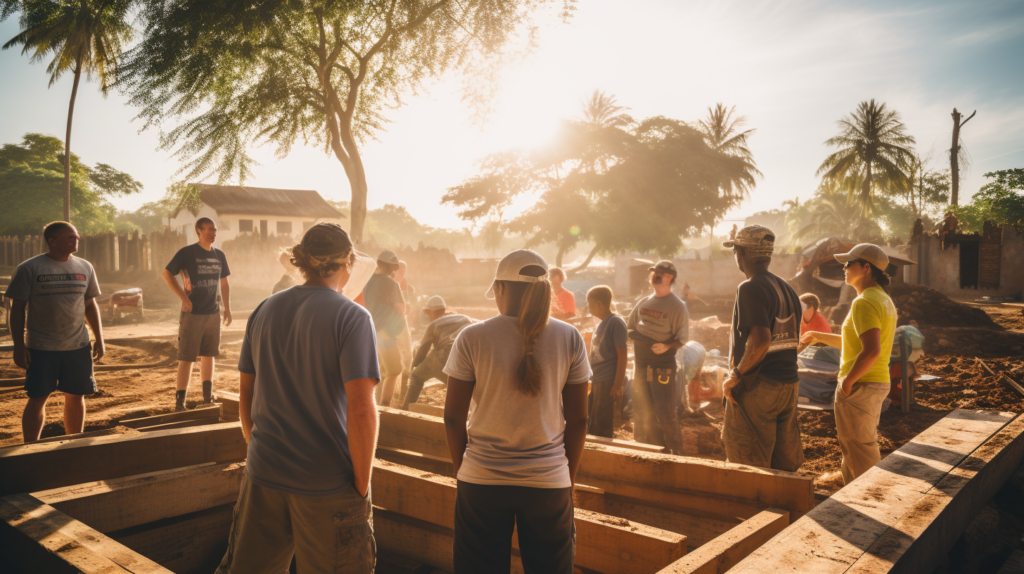Welcome, my friend, to the exciting world of volunteer travel! If you’ve ever felt the urge to explore new cultures, make a positive impact, and broaden your horizons, then volunteer travel might just be the perfect adventure for you. In this article, we’ll dive into the ins and outs of volunteer travel, explore the various types of volunteer projects, discuss the benefits and challenges, and highlight the importance of sustainable and ethical practices.
Traveling with a purpose is a unique and fulfilling way to see the world and truly make a difference in the lives of others. Whether you’re a student looking for a meaningful break, a professional seeking to give back, or a retiree eager to contribute to society, volunteer travel offers opportunities for individuals of all ages and backgrounds to grow personally, professionally, and culturally.
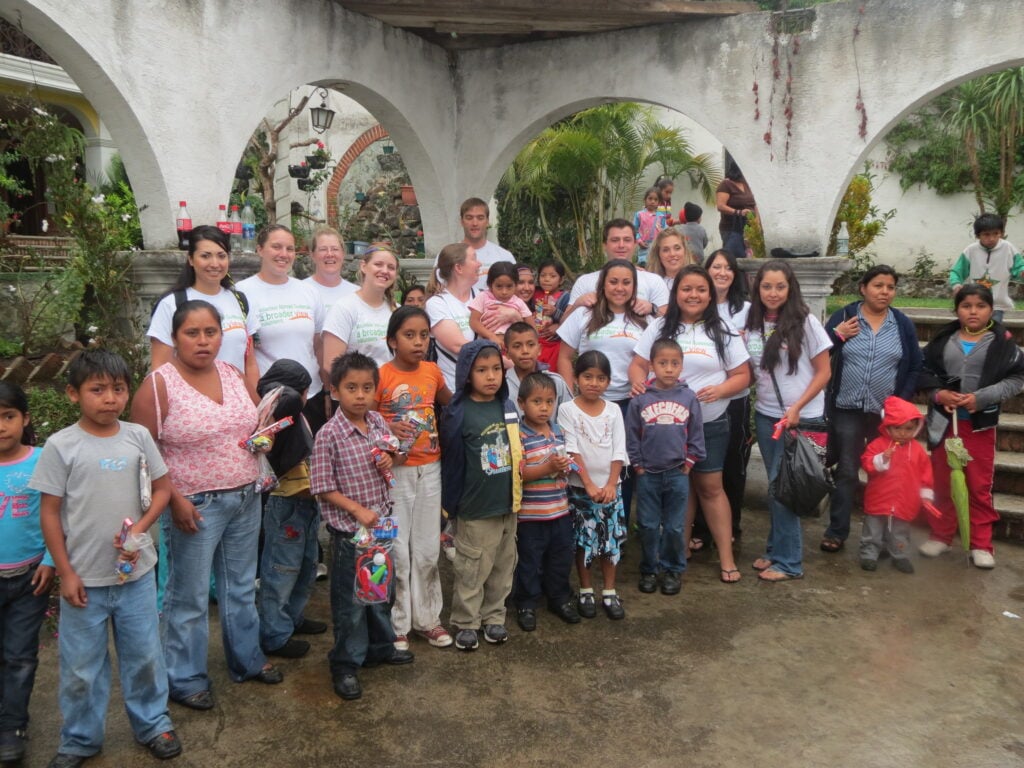
So, grab a cup of tea and get ready to embark on a journey that will not only transform the lives of those you meet along the way but will also leave an indelible mark on your own heart and mind. Let’s dive into the world of volunteer travel and discover how you can be part of this incredible movement.
Understanding Volunteer Travel
Welcome to the exciting world of volunteer travel! If you’re curious about this unique and fulfilling way to explore the world and make a positive impact, you’re in the right place. In this section, we’ll dive into the basics of volunteer travel and why it’s such a meaningful experience.
Volunteer travel, also known as voluntourism or service travel, is a form of travel where individuals or groups dedicate their time and skills to support communities in need. It goes beyond traditional sightseeing and allows you to actively contribute to a cause while immersing yourself in the local culture.
Why Volunteer Travel Matters
Volunteer travel is not just about ticking off destinations on your bucket list. It’s about making a genuine difference in the lives of others and fostering cross-cultural understanding. Here are a few key reasons why volunteer travel matters:
- Making a Positive Impact: By volunteering, you have the opportunity to address the social, environmental, or educational needs of a community. Your efforts can leave a lasting impact and create positive change.
- Personal Growth and Cultural Exchange: Volunteer travel opens doors to new experiences, challenges, and perspectives. It allows you to step out of your comfort zone, learn from others, and develop valuable skills like teamwork, adaptability, and empathy.
- Building Skills and Experience: Engaging in volunteer projects can enhance your skillset and boost your résumé. Whether you’re teaching English, constructing schools, or protecting wildlife, you’ll gain practical skills that can benefit you both personally and professionally.
Finding the Right Volunteer Program
To embark on a fulfilling volunteer travel experience, it’s crucial to find the right program that aligns with your interests and values. Here are a few steps to help you choose the perfect volunteer program:
- Identify Your Passion: Start by considering the causes you are most passionate about. Do you want to contribute to education, community development, wildlife conservation, or healthcare? Identifying your passion will help narrow down the options.
- Research Organizations: Thoroughly research volunteer organizations that focus on your chosen cause and have a good reputation. Look for reviews, testimonials, and accreditations to ensure reliability and legitimacy.
- Assess Program Details: Evaluate the program details such as the duration, location, project activities, and support provided by the organization. It’s essential to find a program that suits your availability, comfort level, and specific skills you want to develop.
- Connect with Alumni: Reach out to former volunteers who have participated in the program you’re interested in. They can provide valuable insights into their experiences, the organization’s support, and the impact they were able to make.
Remember, volunteer travel should be a fulfilling and enriching experience for both you and the community you serve. Taking the time to research and choose the right program ensures you maximize your impact and have a meaningful journey.
Now that you have a better understanding of volunteer travel, let’s dive deeper into how to prepare for this transformative experience.
Choosing the Right Volunteer Program
Volunteer travel is an incredible opportunity to make a positive impact while experiencing new cultures and meeting like-minded individuals. With so many volunteer programs available, it’s important to choose the right one that aligns with your interests, skills, and values. Here are some key factors to consider when selecting a volunteer program:
1. Assess Your Skills and Interests
Before committing to a volunteer program, take some time to evaluate your skills, interests, and passions. Consider what causes or issues you feel most strongly about, whether it’s education, community development, environmental conservation, or healthcare. This will help narrow down the types of volunteer projects that you would be most suited for and passionate about.
2. Research the Organization
Once you have identified your interests, it’s essential to research the volunteer organizations that offer programs in those areas. Look for reputable organizations that have a track record of effective and ethical volunteer work. Read reviews and testimonials from past volunteers to get a sense of their experiences and the impact they were able to make.
3. Evaluate Program Goals and Objectives
Each volunteer program will have its own set of goals and objectives. Make sure to carefully review these to ensure they align with your values and the impact you hope to make. Consider the organization’s approach to sustainability, community involvement, and long-term impact. Look for programs that prioritize collaboration and empowerment of local communities.
4. Consider Logistics and Duration
When choosing a volunteer program, take into account practical considerations such as the duration of the program, location, and cost. Some programs offer short-term placements, while others may require a longer commitment. Consider your availability and budget when making your decision. Additionally, consider the location and cultural context of the program. Ensure that you have a genuine interest and respect for the local culture and community.
5. Seek Support and Advice
Don’t hesitate to seek advice from friends, family, or fellow travelers who have participated in volunteer programs before. They may be able to provide valuable insights and recommendations based on their personal experiences. Additionally, reach out to the volunteer organization directly to ask any questions or clarify any doubts you may have. A good organization will be responsive and willing to provide the information you need to make an informed decision.
Choosing the right volunteer program is crucial to ensure a fulfilling and impactful experience. By assessing your skills and interests, researching organizations, evaluating program goals, considering logistics, and seeking advice, you’ll be well-equipped to find a volunteer program that aligns with your goals and values. So go ahead, embark on this transformative journey and make a difference in the world!
Preparing for Volunteer Travel
Preparing for volunteer travel involves a few important steps to ensure a smooth and meaningful experience. Taking the time to research your destination, understand cultural sensitivities, and organize necessary documents can help you feel more prepared and confident. Here are some key considerations to keep in mind:
Researching Your Destination
Before embarking on your volunteer travel adventure, it’s crucial to research your chosen destination thoroughly. This will help you gain a deeper understanding of the local customs, traditions, and social norms. Here are a few things to consider:
- Learn about the local culture, history, and geography of your destination.
- Familiarize yourself with any customs or practices that may differ from your own.
- Explore the local language and learn a few basic phrases to help you communicate with locals.
- Understand the political and social landscape of the country you’ll be visiting.
- Research the weather conditions and pack accordingly.
Understanding Cultural Sensitivities
Each country has its own unique cultural sensitivities, and it’s important to be respectful and mindful of them while volunteering. Here are some tips to help you navigate cultural differences:
- Dress modestly and appropriately, following the local customs and traditions.
- Be aware of body language and gestures that may be considered offensive or disrespectful.
- Show gratitude and respect for local customs and traditions.
- Be open-minded and willing to learn from the locals.
- Respect personal space and boundaries of others.
Organizing Necessary Documents
When traveling abroad for volunteer work, it’s essential to have all your paperwork in order. Here are some documents you may need:
- Valid passport: Make sure your passport is valid for at least six months beyond your planned stay.
- Visa: Check if you need a visa for your chosen destination and apply well in advance.
- Travel insurance: It’s crucial to have a comprehensive travel insurance policy that covers medical emergencies, trip cancellations, and luggage loss.
- Proof of vaccinations: Some countries may require specific vaccinations, so make sure you are up to date with your immunizations.
- Contact information: Carry important contact numbers, including the embassy or consulate in your host country.
Remember to make copies of your important documents and keep them separate from the originals in case of loss or theft. It’s also a good idea to leave copies with someone you trust back home.
By taking the time to prepare and research your volunteer travel experience, you can set the foundation for a memorable and impactful journey. Understanding your destination, respecting cultural sensitivities, and ensuring you have the necessary documents in place will help you make the most of your volunteering opportunity.
Getting Involved: Types of Volunteer Projects
When it comes to volunteer travel, there are various types of projects that you can get involved in. These projects cater to different interests and skills, allowing you to make a meaningful impact in areas that resonate with you. Let’s take a closer look at some of the common types of volunteer projects:
Education and Teaching Programs
If you have a passion for education and empowering others through learning, education and teaching programs might be the perfect fit for you. These programs often involve teaching English, math, or other subjects to children or adults in underserved communities. By volunteering in education programs, you can help improve access to quality education and contribute to the development of individuals and communities.
Community Development and Construction
Volunteer projects in community development and construction focus on improving infrastructure and creating sustainable solutions for local communities. These projects might involve building schools, houses, or community centers, or assisting in community development initiatives such as clean water projects or agricultural programs. By participating in these projects, you can directly contribute to improving living conditions and creating long-lasting positive change.
Environmental Conservation
If you have a deep love for nature and a desire to protect the environment, volunteer projects in environmental conservation offer a great opportunity to make a difference. These projects often involve activities such as reforestation, wildlife conservation, marine conservation, or sustainable farming practices. By taking part in conservation efforts, you can help preserve fragile ecosystems, protect endangered species, and contribute to a more sustainable future.
Healthcare and Medical Outreach
For those interested in healthcare and making a direct impact on people’s lives, healthcare and medical outreach projects provide a unique opportunity. These projects often involve providing medical assistance in underserved areas, conducting health check-ups, organizing health education programs, or supporting local medical clinics. By volunteering in healthcare projects, you can help improve access to healthcare services and make a tangible difference in the lives of others.
No matter which type of volunteer project you choose, it’s important to remember that each project has its own specific requirements and responsibilities. Make sure to thoroughly research and understand the project before committing, and consider your own skills, interests, and time availability. Ultimately, the goal is to find a project that aligns with your passions and allows you to make a meaningful impact in the community you serve.
“Volunteering is the ultimate exercise in democracy. You vote in elections once a year, but when you volunteer, you vote every day about the kind of community you want to live in.” – Marjorie Moore
Benefits of Volunteer Travel
Volunteer travel is not only a way to explore new places, but also an opportunity to make a positive impact on the world. Whether you choose to teach English to children in a rural village or help build homes for families in need, volunteer travel offers countless benefits that go beyond the typical tourist experience. Here are some of the key benefits of volunteer travel:
Making a Positive Impact
When you engage in volunteer travel, you have the chance to make a real difference in the lives of others. Whether it’s providing healthcare services, teaching essential skills, or supporting environmental conservation efforts, your contributions can have a lasting impact on the communities you serve. By volunteering your time and skills, you become part of a movement that addresses social and environmental challenges and helps create a better future for those in need.
Personal Growth and Cultural Exchange
Volunteer travel offers a unique opportunity for personal growth and cultural exchange. By immersing yourself in a different community and working alongside local residents, you gain a deeper understanding of their way of life, traditions, and challenges. This cultural exchange can broaden your perspective, challenge your assumptions, and foster empathy and understanding.
Building Skills and Experience
Volunteer travel allows you to develop new skills and gain valuable experience in a variety of fields. Whether you’re teaching, building, or providing medical assistance, you can enhance your communication, problem-solving, and teamwork skills. These skills are not only valuable for your volunteer work, but also transferable to other areas of your life and career. Employers often value the experience gained through volunteer travel as it demonstrates adaptability, resilience, and a willingness to make a difference.
“I traveled to Thailand as a volunteer teacher and it was one of the most fulfilling experiences of my life. Not only did I get to use my teaching skills to empower students, but I also learned so much about their culture and way of life. It was a transformative experience that I will never forget.” – Sarah, Volunteer Traveler
Connecting with Like-Minded Individuals
Volunteer travel attracts individuals from all over the world who share a common purpose: to make a positive impact. By participating in volunteer programs, you have the opportunity to connect with like-minded individuals who are passionate about making a difference. These connections can lead to lifelong friendships, networking opportunities, and a sense of belonging to a global community of changemakers.
Gaining a Broader Perspective
Traveling as a volunteer allows you to see the world from a different perspective. You have the chance to witness firsthand the social and environmental challenges faced by communities around the globe. This experience can broaden your understanding of global issues and inspire you to take action even after your volunteer program ends. It can also challenge your own preconceived notions and expand your knowledge about different cultures and ways of life.
Volunteer travel offers a myriad of benefits that go beyond the joy of exploring new places. By making a positive impact, experiencing personal growth, building skills, connecting with like-minded individuals, and gaining a broader perspective, you can truly transform lives through your volunteer travel experiences. So, why not embark on a journey that not only satisfies your wanderlust but also makes a difference in the world?
Overcoming Challenges
Volunteer travel can be an incredibly rewarding experience, but it’s not without its challenges. Here are some common challenges that volunteers might face and some tips on how to overcome them:
Language Barriers and Communication
One of the biggest challenges that volunteers may encounter is the language barrier. Communicating with locals and fellow volunteers can be difficult if you don’t speak the same language. However, don’t let this discourage you! Here are a few strategies to help you navigate language barriers:
- Learn some basic phrases: Before you embark on your volunteer journey, take the time to learn a few basic phrases in the local language. Simple greetings and expressions of gratitude can go a long way in establishing rapport with the locals.
- Utilize translation tools: In this digital age, there are many translation apps and tools available that can help bridge the communication gap. Carry a pocket dictionary or download a translation app on your phone to help you communicate with locals.
- Use non-verbal communication: Sometimes, words aren’t necessary to convey your message. Learn to use hand gestures, body language, and facial expressions to get your point across. A smile is a universal language that can go a long way in making connections.
Dealing with Different Socioeconomic Conditions
When volunteering abroad, you may encounter different socio-economic conditions than what you’re familiar with. It can be challenging to witness poverty and inequality firsthand, but there are ways to approach this challenge:
- Cultivate empathy: Take the time to put yourself in the shoes of the local community members. Try to understand their struggles and challenges by listening to their stories and experiences. This will help you develop empathy and gain a deeper understanding of the issues at hand.
- Focus on the positive impact: Remember that your presence and efforts as a volunteer are making a positive impact on the community. By providing your time and skills, you are contributing to a brighter future for the locals. Keep the bigger picture in mind and let it inspire you to continue your work.
Cultural Adjustment and Homesickness
Living in a foreign country can be overwhelming at times. You may experience cultural shock and homesickness as you navigate a new environment. Here are some tips to help you overcome these challenges:
- Stay open-minded: Embrace the cultural differences around you and be open to learning and experiencing new things. Immerse yourself in the local culture and traditions, and you’ll find that it becomes easier to adjust.
- Stay connected: Stay in touch with your loved ones back home. Technology has made it easier than ever to stay connected through video calls and messaging apps. Sharing your experiences and feelings with friends and family can help alleviate homesickness.
- Build connections with fellow volunteers: Seek support from your fellow volunteers who are going through similar experiences. Share your thoughts and emotions with them, and you’ll find strength in your shared journey.
Remember, challenges are a natural part of any journey, but they are also opportunities for personal growth and learning. Embrace these challenges as opportunities for self-discovery and resilience.
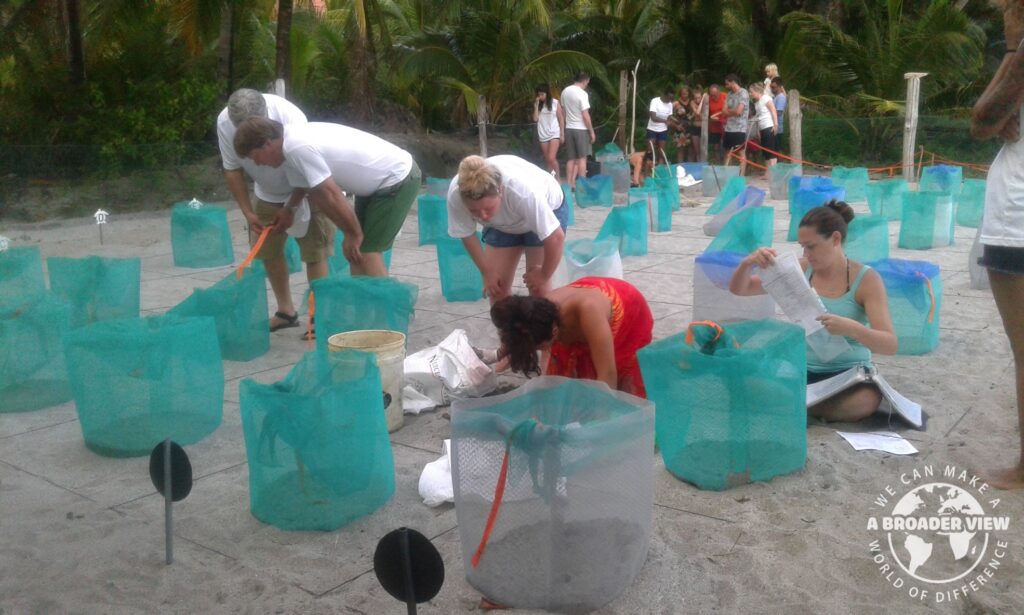
Health and Safety Considerations
When embarking on a volunteer travel experience, it’s essential to prioritize your health and safety. Here are some important considerations to keep in mind before and during your journey:
Vaccinations and Travel Insurance
- Vaccinations: Before traveling to a foreign country, consult with a travel doctor or healthcare professional to determine which vaccinations are recommended or required for the destination. Some common vaccinations for volunteer travelers include those for hepatitis A and B, typhoid, tetanus, and influenza. Ensuring you are up-to-date on your routine vaccinations, such as measles, mumps, and rubella (MMR), is also important.
- Travel Insurance: It is crucial to have comprehensive travel insurance that covers medical expenses and emergency evacuation in case of illness or injury. Read the policy details carefully to ensure it meets your needs and provides coverage for volunteer work. Consider purchasing insurance that also covers trip cancellation, loss of baggage, and personal liability.
Maintaining Hygiene and Health
- Clean Drinking Water: Access to clean drinking water is vital for maintaining good health. In some destinations, tap water may not be safe to drink, so always carry a reusable water bottle and purify water using reliable methods such as boiling, using water purification tablets, or using a portable water filter.
- Basic Hygiene Practices: Practicing good hygiene is essential to prevent illness. Wash your hands regularly with soap and water, especially before meals and after using the restroom. Bring hand sanitizer for situations when soap and water are not readily available.
- Food Safety: Be mindful of the food you consume. Eat freshly cooked and thoroughly cooked meals to reduce the risk of foodborne illnesses. Avoid consuming raw or undercooked meats, seafood, or dairy products. Fruits and vegetables should be peeled or washed with purified water before consumption.
Safety Tips for Solo and Group Travel
- Stay Aware of Your Surroundings: Whether you are traveling alone or in a group, it’s important to stay alert and be aware of your surroundings at all times. Familiarize yourself with the local customs, laws, and emergency contact numbers.
- Communicate Your Itinerary: Share your travel plans with a trusted friend or family member. Provide them with contact details, addresses of accommodations, and the duration of your stay. Regularly check in with them to keep them updated on your whereabouts.
- Travel in Groups: If possible, consider volunteering with a reputable organization or joining a group program that provides a structured environment with fellow volunteers. Traveling in a group not only enhances safety but also offers support and companionship.
- Keep Emergency Contact Information: Carry a list of emergency contact numbers, including the local police, embassy or consulate, and the volunteer organization’s contact details. Store this information in your phone and keep a printed copy as a backup.
Remember, while adventure and challenges can be an integral part of volunteer travel, it is essential to prioritize your well-being. Taking necessary precautions will help ensure a safe and fulfilling experience.
Without a doubt, health and safety considerations play a crucial role in the planning and execution of any volunteer travel experience. By proactively addressing these concerns, you are taking the necessary steps to protect yourself and make the most of your journey. So, prepare well, take care of yourself, and embark on a meaningful and safe volunteer travel adventure!
Sustainable and Ethical Volunteer Travel
Volunteer travel can be an incredibly rewarding experience, not just for the volunteers themselves, but also for the communities and environments they work in. However, it’s important to approach volunteer travel with a mindset of sustainability and ethics to ensure that our actions have a positive and long-lasting impact. In this section, we will explore sustainable and ethical practices in volunteer travel, including responsible volunteering practices, supporting local communities, and avoiding dependency.
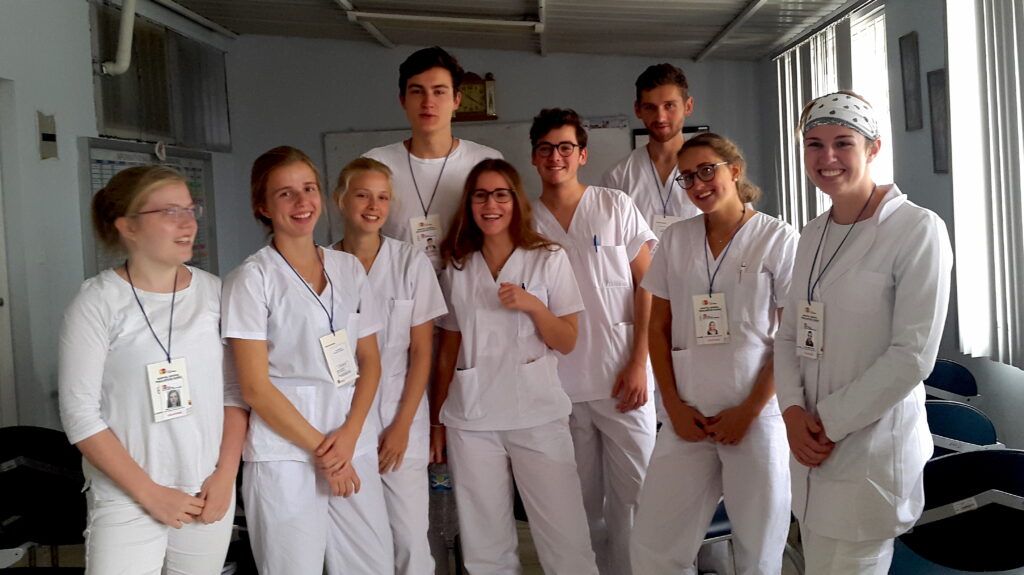
Responsible Volunteering Practices
When engaging in volunteer travel, it’s crucial to practice responsible volunteering. Here are some key principles to keep in mind:
- Skills and Expertise: Choose a volunteer program that aligns with your skills and expertise. By leveraging your unique strengths, you can maximize the impact of your contribution.
- Duration of Stay: Consider the length of your stay. Short-term volunteering can sometimes do more harm than good, as it can disrupt the stability of the project or community. Long-term commitments often yield more sustainable results.
- Partnerships with Local Organizations: Look for volunteer programs that have established partnerships with local organizations. This ensures that the work being done is in line with the needs and priorities of the community.
Supporting Local Communities
One of the key aspects of sustainable volunteer travel is supporting local communities. Here’s how you can contribute to the well-being of the communities you work with:
- Empowerment: Focus on projects that empower local communities by involving them in decision-making processes and providing them with the necessary resources and skills to sustain the initiatives even after you leave.
- Cultural Sensitivity: Respect and appreciate the local culture, customs, and traditions. Take the time to learn about the community’s way of life, and adapt to their practices while you’re volunteering.
- Economic Impact: Opt for volunteer programs that support the local economy by employing local staff, sourcing materials locally, and investing in local businesses.
Avoiding Dependency
While volunteer travel can have a positive impact on communities, it’s important to avoid creating dependency. Here are some ways to ensure that your volunteer efforts foster independence rather than reliance:
- Capacity Building: Prioritize projects that focus on capacity building. By teaching skills and transferring knowledge to local community members, you can enable them to take charge of their own development.
- Sustainable Projects: Engage in volunteer programs that have a long-term vision and plan for sustainability. Projects that focus on creating self-sustaining systems, such as education programs or income-generation initiatives, can help communities thrive even after you’re gone.
- Community Participation: Involve community members in every step of the project, from planning to implementation. By including their input and feedback, you can ensure that the initiatives address their genuine needs and aspirations.
In summary, sustainable and ethical volunteer travel requires a thoughtful approach that takes into account the well-being of communities and the environment. By practicing responsible volunteering, supporting local communities, and avoiding dependency, we can make a lasting positive impact and contribute to sustainable development. So, before you embark on your volunteer travel journey, remember to choose programs that prioritize sustainability and ethics, and make a difference in a way that lasts beyond your time there.
Sharing the Journey: Stories from Volunteer Travelers
Volunteer travel is a transformative experience that not only allows you to make a positive impact on communities in need, but also opens your eyes to new cultures and perspectives. But don’t just take my word for it! Let’s hear some stories from volunteer travelers who have embarked on incredible journeys and returned with unforgettable memories.
1. Maria’s Teaching Adventure in Kenya
Maria, a passionate educator from Spain, decided to volunteer her teaching skills in a rural village in Kenya. She was excited to contribute to the education system and empower the young minds of the community. Maria was initially worried about the language barrier, as she only spoke Spanish and English, but she quickly discovered that the universal language of kindness and enthusiasm transcends linguistic differences.
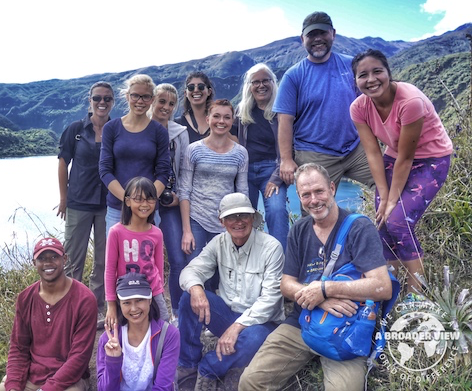
“It was incredible to see how eager the children were to learn. We had limited resources, but their thirst for knowledge was insatiable. I taught them basic math and English, and we also had fun activities like art and sports. The smiles on their faces were priceless.”
2. James’s Construction Project in Cambodia
James, a construction worker from Australia, decided to put his skills to good use by volunteering for a community development project in Cambodia. He joined a team that was building a school for underprivileged children. Though the work was physically demanding, the camaraderie amongst the volunteers and the appreciation of the local community made it all worthwhile.
“We worked long hours under the scorching sun, but seeing the progress we made each day was incredibly rewarding. The local community welcomed us with open arms and their gratitude was overwhelming. The children were especially excited about having a safe and comfortable place to learn.”
3. Sarah’s Conservation Efforts in Costa Rica
Sarah, an environmental enthusiast from Canada, embarked on a journey to Costa Rica to volunteer for an environmental conservation project. Her main task was to assist in protecting sea turtle nests and educating locals about the importance of conservation. Sarah was blown away by the beauty of the pristine beaches and the dedication of the local volunteers.
“The night patrols were awe-inspiring. We would walk along the beach, carefully relocating turtle nests to safer areas to ensure the survival of the hatchlings. Witnessing the baby turtles make their way to the ocean was a once-in-a-lifetime experience. It reaffirmed my commitment to conservation.”
4. David’s Medical Outreach in Nepal
David, a healthcare professional from the United States, decided to utilize his medical knowledge by volunteering for a medical outreach program in rural Nepal. He provided primary healthcare services to remote communities that had limited access to medical facilities. David was deeply moved by the resilience and gratitude of the patients he encountered.
“The conditions were challenging, but the gratitude of the patients made it all worthwhile. I treated minor ailments, conducted health checks, and provided basic health education. It was humbling to be able to make a difference in the lives of those who had limited access to healthcare.”
These are just a few stories from the countless volunteer travelers who have embarked on life-changing journeys. Their experiences serve as a testament to the power of volunteer travel to transform lives, both for those being helped and for the volunteers themselves.
So, if you’re considering volunteer travel, take inspiration from these stories and embark on a journey that will not only leave a lasting impact on the communities you serve but also broaden your horizons and fill your heart with unforgettable memories.
Conclusion
Volunteer travel is a remarkable way to not only explore the world but also make a positive impact on the lives of others. By immersing yourself in a different culture and dedicating your time and skills to a meaningful cause, you can experience personal growth, build valuable skills, and create lasting memories.
Before embarking on a volunteer travel journey, it’s important to understand the different types of volunteer programs available and choose one that aligns with your interests and values. Consider factors such as the duration of the program, the specific project you’ll be involved in, and the level of support provided by the organization.
Preparation is key when it comes to volunteer travel. Research your destination thoroughly, paying attention to cultural sensitivities and customs. Make sure to organize all necessary travel documents, including visas and permits, to ensure a smooth experience.
Once you’re on your volunteer trip, you’ll have the opportunity to participate in a variety of projects, such as education and teaching programs, community development and construction, environmental conservation, and healthcare and medical outreach. Each project offers unique opportunities to make a difference and contribute to the community.
One of the most significant benefits of volunteer travel is the positive impact you can make. Whether it’s helping children gain access to education or building sustainable infrastructure, your efforts can have a lasting effect on the lives of others. Additionally, volunteer travel allows for personal growth and cultural exchange, promoting understanding and empathy across borders.
While volunteer travel can be incredibly rewarding, it also comes with its challenges. Language barriers, different socioeconomic conditions, and cultural adjustment can all pose obstacles. However, with an open mind and a willingness to adapt, these challenges can be overcome, leading to a truly transformative experience.
Health and safety considerations are paramount when undertaking volunteer travel. Prioritize vaccinations and travel insurance to protect yourself from potential health risks. Additionally, maintaining proper hygiene and adhering to safety guidelines are essential for a smooth and safe journey.
Sustainable and ethical volunteer travel should be a priority for every traveler. It is crucial to engage in responsible volunteering practices, support local communities, and avoid creating dependency. By working in collaboration with local organizations and respecting their expertise, we can ensure that our efforts are helpful, sustainable, and respectful.
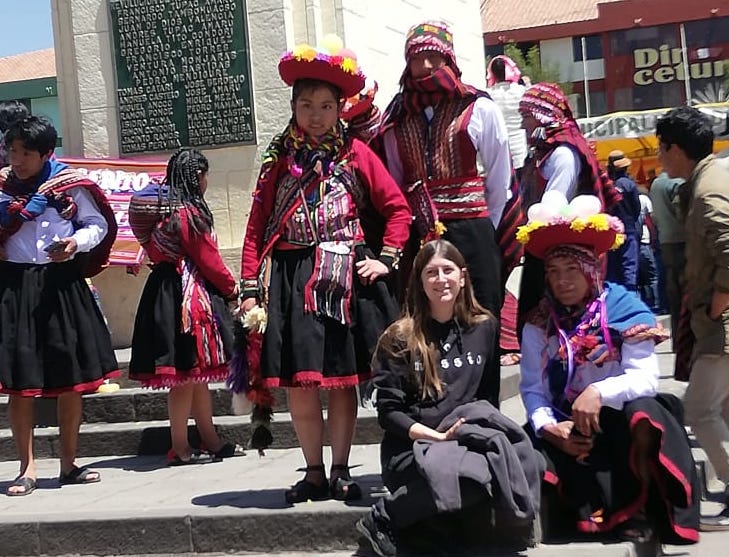
Lastly, the stories of volunteer travelers serve as a testament to the power of volunteer travel. Each individual’s journey is unique and inspiring, showcasing the transformative impact that can be achieved through volunteer work.
In conclusion, volunteer travel offers a life-changing experience that not only allows you to explore the world but also make a meaningful difference. By choosing an appropriate program, preparing diligently, and embracing the challenges and rewards of volunteer work, you can embark on a journey that not only transforms the lives of others but also your own. Start planning your volunteer travel adventure today and open yourself up to a world of possibilities.
Frequently Asked Questions
- What is volunteer travel?
Volunteer travel, also known as voluntourism, is a form of travel where individuals participate in volunteer activities while exploring new destinations. It combines the joy of travel with the opportunity to make a positive impact and contribute to local communities.
- How does volunteer travel work?
Volunteer travel typically involves individuals or groups signing up with organizations that offer volunteer programs in various destinations. These programs can range from teaching English, assisting with community development projects, conservation work, or healthcare support. Participants usually pay a program fee that covers accommodation, meals, and support services.
- What are the benefits of volunteer travel?
Volunteer travel allows individuals to immerse themselves in different cultures, gain a new perspective, and develop a sense of empathy and global citizenship. It also provides an opportunity to develop new skills, make meaningful connections, and contribute to positive change in communities and conservation efforts.
- Who can participate in volunteer travel programs?
Volunteer travel programs are open to individuals of all ages, backgrounds, and skill levels. Whether you are a student, professional, retiree, or someone looking to make a difference, there are programs available to suit various interests and abilities.
- Are there any safety considerations for volunteer travel?
Safety is a top priority in volunteer travel programs. Reputable organizations conduct thorough risk assessments, provide necessary safety training, and offer on-ground support. It’s important for participants to research and choose well-established organizations with a strong track record in safety and ethical practices.
-
Volunteering Abroad with Medical Missions: Make a Difference Today
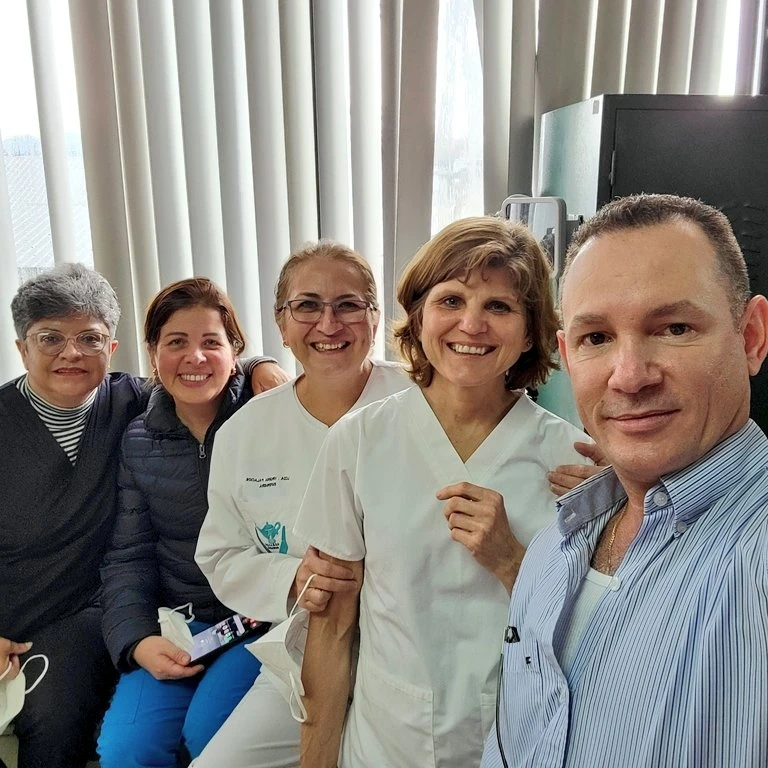
Join medical group trips, Nurses Without Borders, and Dentists Without Borders to make a difference in underserved communities worldwide. Learn about the countries where these programs operate and read real-life experiences from volunteers. Volunteering overseas is an excellent opportunity to make a difference in the lives of others while experiencing new cultures and forging unforgettable…
-
Embrace Overseas Service | Transform Lives Through Global Volunteerism

International Volunteering: Discover Meaningful Travel and Transform Lives with A Broader View
-
A World of Opportunities: Unveiling the Benefits of International Volunteer Programs

Discover numerous benefits of international volunteer programs and unleash a world of rewarding opportunities with our in-depth guide.

